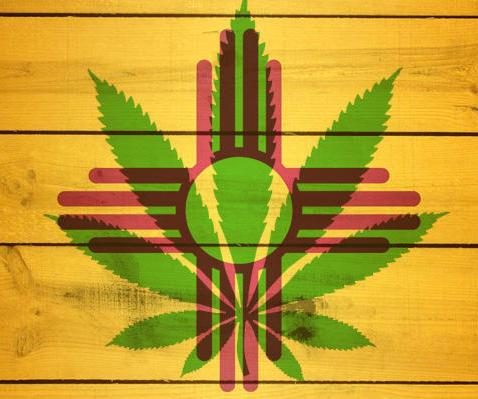New Mexicans can now legally possess and grow cannabis for medical and adult-use

A new law that recently took effect in New Mexico, House Bill 2, the Cannabis Regulation Act, has opened up a window of opportunity for people who are enrolled in the state’s Medical Cannabis Program.
Patients were previously restricted to cultivating just four mature plants. However, this limit has been raised to six plants or 12 for households with more than one adult.
The proposed set of rules for retailers is yet to be published by the state. Licenses are anticipated to be issued at some point in 2022, but no later than April 1.
Personal use cannabis legalization in New Mexico occurs months after a legal battle to permit the sale and production of high-THC plants. THC (tetrahydrocannabinol) is a psychoactive constituent of cannabis that forms the basis of the nation’s recreational market,
It should be noted that, despite cannabis legalization in New Mexico, it is forbidden for cannabis products to be brought into the state from nearby legal states, such as Arizona and Colorado.
Licit market is threatened by New Mexico’s illicit cannabis market
Advocates have long-touted the Cannabis Regulation Act as a method of bolstering New Mexico’s economy, increasing jobs and decriminalizing acts that often target communities of color, as well as inspiring state residents to dabble in cannabis entrepreneurship via home cultivation opportunities.
Now that New Mexico’s cannabis legalization law has been signed by Governor Lujan Grisham, the legal state is sure to create new opportunities for small-scale and large-scale industry players. So promising is the outlook that a professor at the University of New Mexico School of Public Administration, Kelly O’Donnell, foresees industry revenue exceeding $1 billion by the year 2026.
Notwithstanding the promising insights into New Mexico’s legal cannabis market, the nascent industry has a long way to go before illegal sellers are completely stamped out. It’s important to note that, while it won’t be illegal to possess the plant, there is no place to buy adult-use cannabis in New Mexico cannabis just yet. Because of this, advocates are concerned that impatient consumers will turn to illicit avenues.
“We know that people are currently obtaining and using illegal cannabis, and that will continue for 10 months,” said state director of the National Drug Policy Alliance, Emily Kaltenbach. Her affiliated organization assisted in drafting the recreational cannabis legislation.
Conversely, the superintendent of the state Regulation and Licensing Department, Linda Trujillo, says that members of her department – which is tasked with providing regulatory oversight for New Mexico’s cannabis industry – are not concerned about a spike in black market deals.
Consumers cannot buy recreational cannabis in New Mexico until 2022
Possessing and using adult-use cannabis in New Mexico may be legal, but people 21 years and older will need to wait until next year if they want to legally buy the plant inside a licensed store. April 2022 is earmarked as the date on which buyers can top up their stash.
“It could be sooner depending on the Regulations and Licensing Department offers the opportunity but that really deals with a lot of rulemaking that needs to be in place before April first,” said Democratic State Representative Andrea Romero.
As per the details of New Mexico’s newly-effectuated cannabis legalization law, individuals can also cultivate six plants from home or a maximum of 12 for a household that harbors two or more adults aged 21 and older.
“You can possess up to two ounces as a plant, up to 800 milligrams as edibles and 16 grams of extract,” said Rep. Romero, who emphasized the fact that it’s still against federal law to purchase cannabis in another state and then venture to New Mexico.
In regards to cannabis-focused enforcement policies, New Mexico State Police have alerted drivers and consumers to the fact that they will remain extra observant for people who are driving under the influence and/or possess more than the legal limit.







